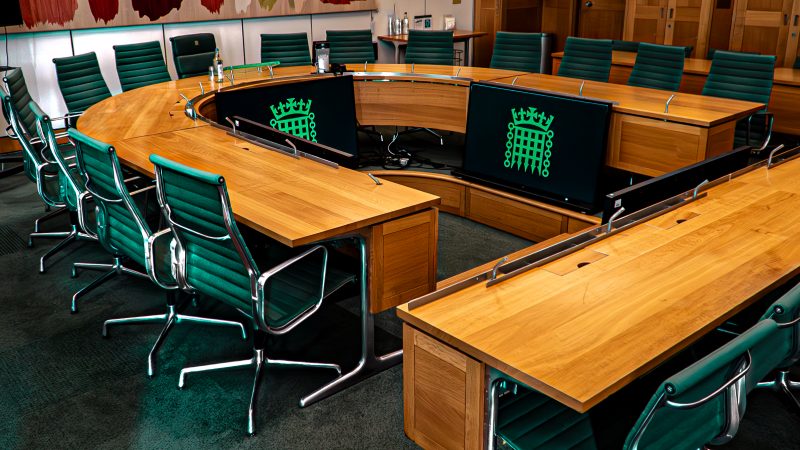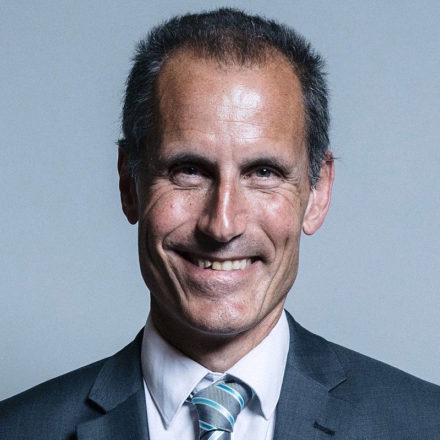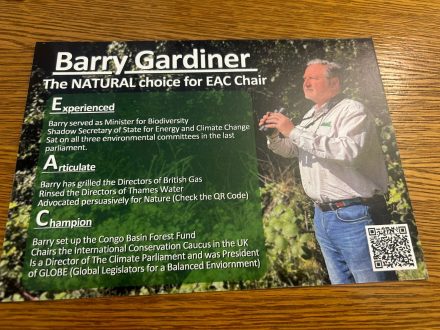
After facing their own election less than eight weeks ago, MPs themselves will soon be casting ballots in a different contest – deciding who will chair Commons select committees.
A total of 26 select committees are electing new chairs in early September, with 18 being chaired by a Labour MP due to the make-up of the new Parliament, including defence, education, foreign affairs, justice, business and trade, and transport.
Select committees, which examine spending, policies and administration of each government department, are an important cross-party tool for MPs to hold a government to account.

Bill Esterson, Labour MP for Sefton Central, told LabourList: “The select committees are a great opportunity for Parliament to produce evidence and recommendations to support the government’s agenda.
“Committees working closely with ministers, scrutinising what the government is doing and coming up with recommendations is a hugely important opportunity.”
Matt Western, Labour MP for Warwick and Leamington, echoed this sentiment, including the importance of the cross-party element of select committees.
“It can be a very useful tool in the democratic process for gaining additional detailed investigation into a particular area of concern or opportunity,” he said.
“The work of select committees should be embraced by an open government because it can be immensely helpful in helping them finesse policy and their strategy.”
‘Individual chair and their background significant for committee effectiveness’
The specific individual chosen to chair these committees can be important in steering its effectiveness, Esterston argued, as the chair can drive the agenda and influence the committee’s priorities.
He said: “The background of the chair will also be significant ‒ the level to which they know about the subjects before the committee starts its work is key.
“I think having experience in Parliament undoubtedly helps, understanding the committee system.”
READ MORE: NEC elections: The 27 candidates running as CLP reps ‒ and their statements in full
‘I needed more nominations than Tory leadership contenders’
With this in mind, what goes into campaigning for these important elections? For those Labour MPs hoping to chair one of the committees the party will chair, the first step is attracting 15 colleagues to nominate them by the deadline of September 9.
Esterson, who is running to become the chair of the energy security and net zero select committee, said: “I was reflecting ‒ I needed 15 Labour MPs to nominate me, which is more than you need for the Conservative leadership contest, so being a Labour chair of a select committee is more valuable.”
By contrast, Conservative candidates seeking to chair one of their five select committees need 12 nominations from colleagues, with Liberal Democrats needing seven to enter the contest for one of their three select committees.
As part of their bid, candidates also can provide a 500-word supporting statement in their campaign for election, which is published in a booklet of candidates and online as MPs prepare to vote.
How soon do candidates throw their hat in the ring?

How soon do MPs consider a bid to chair a select committee? Western, who is running to chair the business and trade select committee, said that some of his colleagues had been actively considering a bid before committees had been divided amongst parties.
He said: “You don’t know how the cards are going to fall, so once you know the situation in terms of the mix of MPs and then the government announces the Cabinet and ministers, you think about what opportunities there are and what areas of interest.
“It wasn’t clear certainly for the first few weeks which committees would come to each party, and that’s a process of negotiation between the governing party and the opposition parties.
“Once it’s clear which committee is going to which party, people then put themselves forward to say I would like to be the chair of this or that.
“Some people were doing this even before it was known that certain committees would be going to that particular party – which is a slightly risky thing to do.”
READ MORE: Five things Keir Starmer speech tells us about Labour’s plans and its fears
Parallels with parliamentary selection
Western said there is quite a contrast between campaigning in the general election only a matter of weeks ago and campaigning for support from his peers to chair a select committee.
He said: “It’s a bit like having played 11-a-side football to five-a-side football ‒ something where the rules seem to be similar but the game seems to be completely different.”
With all MPs able to cast a ballot, candidates will be canvassing for support from across the aisle as well as from their party colleagues.
The tactics can mirror that of a general election, with Labour MP Barry Gardiner sending leaflets to MPs with a picture of him outdoors holding binoculars as part of his bid to become chair of the environmental audit select committee.
“The same basic principles apply – you’ve got to make your case, you’ve got to tell people what your priorities are,” Esterson explained.
“It’s got similarities to a parliamentary selection. The numbers are relatively similar – you’ve got 650, some [CLP] memberships are of a similar size.
“You do your numbers; what is the turnout going to be, how many do you need to win, how many do you need to get to the second round and then are you going to get your second preferences.
“There is an element of familiarity with an internal parliamentary selection – that’s probably the closest parallel.”
Should new MPs be in the running?
With a post-war record number of new MPs this Parliament, there have been some reports of discontent at some deciding to run as chair for some select committees, with Politico citing one MP who said the bids suggested a “sense of entitlement and a lack of awareness”.
Western disagreed, however, and said: “You can see there are people who are not just really capable, but they have a really diverse experience from across not just the public sector but also the private sector too.
“I think the experience they’ll bring to the chamber and to select committees will be immensely welcome and I think they’ll demonstrate that knowledge and that experience very quickly in those forums.”
Esterson also said that several of his new colleagues are “extremely well qualified” in their specific fields of interest and that there was nothing intrinsically wrong with new MPs charing select committees. However, he did note that these MPs would not have experienced parliamentary life or the committee system and “would have to catch up”.
Nominations for select committees close on September 9 at 4pm, with elections taking place on September 11 between 10am and 4pm.
As a non-factional platform for Labour supporters, LabourList is committed to highlighting a range of views from across the party. This article does not represent an endorsement of any candidate for the select committee elections.
Sign up to our must-read daily briefing email on all things Labour
SHARE: If you have anything to share that we should be looking into or publishing about this story – or any other topic involving Labour– contact us (strictly anonymously if you wish) at [email protected].
SUBSCRIBE: Sign up to LabourList’s morning email here for the best briefing on everything Labour, every weekday morning.
DONATE: If you value our work, please donate to become one of our supporters here and help sustain and expand our coverage.
PARTNER: If you or your organisation might be interested in partnering with us on sponsored events or content, email [email protected].




More from LabourList
Josh Simons resigns as Cabinet Office minister amid investigation
‘After years of cuts, Labour’s local government settlement begins to put things right’
‘The Sherriff of Wild Westminster: what must change in elections bill’